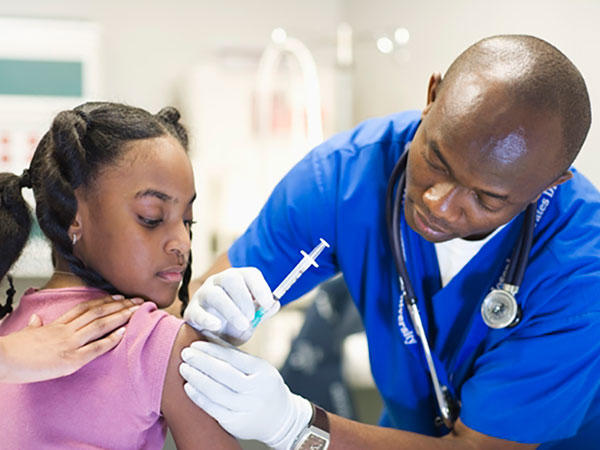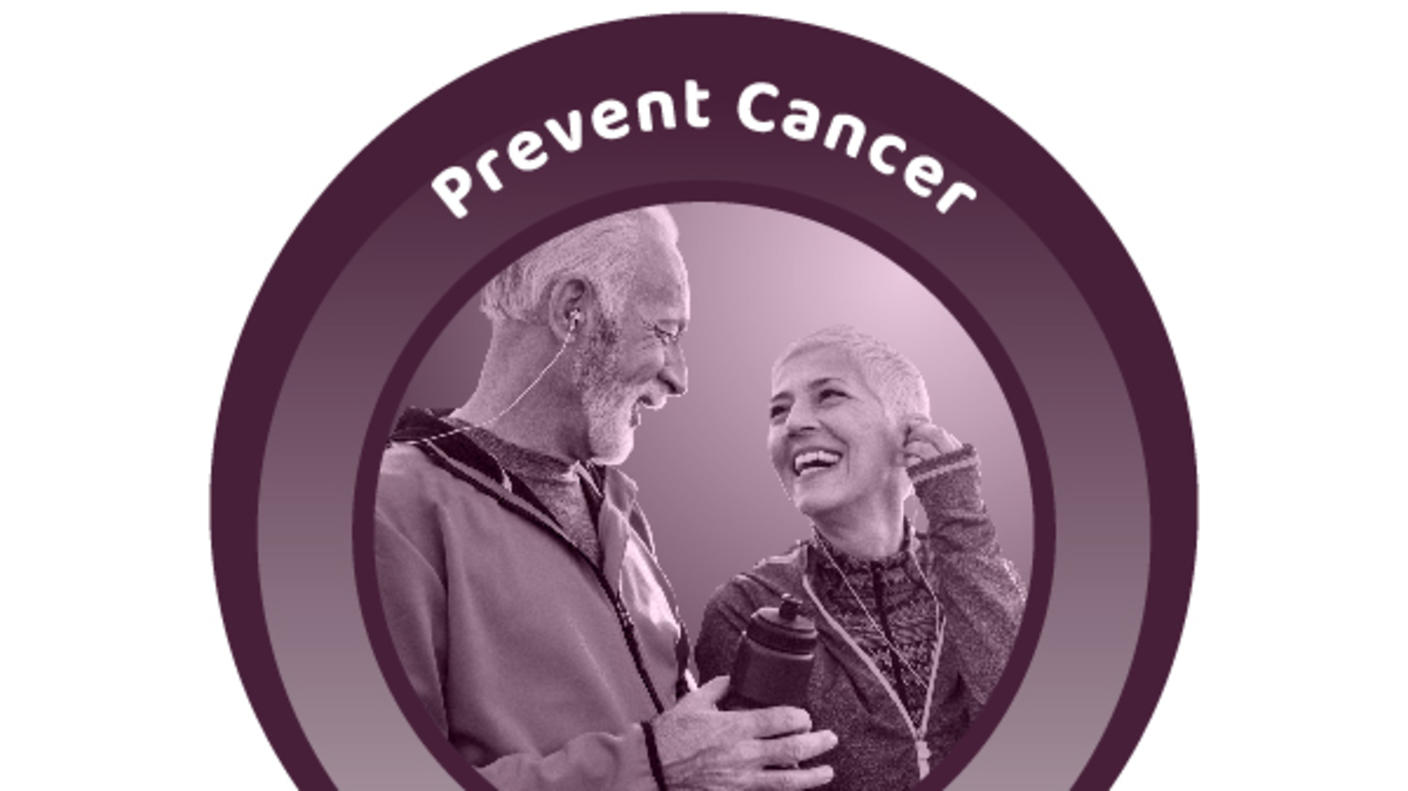The Importance of Cancer Prevention Research
Prevention is important to reduce the burden of cancer on the population and on individuals. In 2023, an estimated 1.96 million people in the United States will be diagnosed with cancer, but thanks in part to cancer prevention efforts, the overall rate of new cancer cases in the United States has fallen over several decades.
Scientists have estimated that more than half the number of cancers diagnosed in the past 20 years could have been prevented by applying the knowledge we have now. For example, scientific evidence shows that reducing exposure to cancer-causing substances such as tobacco, vaccinating against human papillomavirus (HPV), and maintaining a healthy weight and engaging in physical activity can reduce the risk of cancer. In addition, some cancer screening tests, such as the HPV DNA test for cervical cancer and colonoscopy for colorectal cancer, can aid in cancer prevention in addition to early detection.
But many opportunities exist to make greater progress in cancer prevention. Just as we are increasingly able to identify the best treatments for a person’s cancer based on the genetic abnormalities of their tumor, fully characterizing a person’s genetic makeup and understanding their environmental exposures over time will enable us to tailor personalized measures to screen for and prevent cancer.
Discoveries made in cancer biology, immunology, and vaccine science are using the power of the immune system to prevent cancers that are not caused by infectious agents, which represent most new cancer cases. In the future it will be possible to vaccinate individuals at high risk of certain nonviral-associated cancers, such as those with hereditary cancer syndromes, training their immune systems to protect them against cancer development.
The development and implementation of effective prevention strategies means fewer people will have to face the physical, psychological, social, and financial harms of cancer and its treatment.
Selected NCI Activities in Cancer Prevention Research
NCI supports a broad variety of research in cancer prevention, including studies to understand the causes of cancer, to promote preventive behaviors, to eliminate infections that lead to cancer, and to identify and test new prevention approaches.
NCI’s commitment to funding cancer prevention research is especially important because the private sector is less likely to initiate such research due to challenges, such as economic factors, logistical complexities, regulatory requirements, and legal considerations.
Examples of NCI-supported prevention research include:
- The Human Tumor Atlas Network includes a project called the PreCancer Atlas (PCA) that will provide a comprehensive analysis of precancerous tissue and its surrounding microenvironment. The goal of PCA is to understand how precancers change to invasive cancer over time. The data generated through this initiative will help develop models for cancer researchers that can both predict and inform new or improved methods to prevent cancer.
- PREVENT Cancer Preclinical Drug Development Program helps bring new cancer prevention agents and biomarkers through the early stages of research. The program is currently supporting the development of a number of new agents, as well as the evaluation of several drugs already in use for other diseases and conditions.
- The Cancer Prevention-Interception Targeted Agent Discovery Program (CAP-IT) was launched to identify and validate actionable or exploitable targets through analyses of molecular databases of precancer and early cancer and to discover targeted drugs and vaccines for cancer prevention and interception tailored for different high-risk populations, including those with hereditary cancer syndromes and individuals diagnosed with precancers. Preventive agents discovered through the CAP-IT program will be advanced to the PREVENT Program and Cancer Prevention Clinical Trials Network (CP-CTNet) for further preclinical development towards early phase clinical trials.
- The NCI Cancer Prevention Clinic (CPC) conducts research on cancer prevention, early detection, and screening for groups of people at high risk of cancer, including individuals with a family history of cancer or known cancer-causing mutations. The clinic supports the development of novel agents and the repurposing of therapeutic agents to prevent cancer and conducts clinical trials at the NIH Clinical Center.
- NCI researchers are conducting cancer prevention vaccine trials, including an epidemiologic cohort study involving long-term follow-up to evaluate the bivalent HPV vaccine’s durability. NCI scientists continue to analyze data from this trial and other HPV vaccine trials to evaluate the impact of different dosing regimens. Other NCI investigators are enrolling participants in two NCI-funded prevention trials that seek to immunize high-risk individuals against cancers associated with Lynch syndrome, the most common cause of hereditary colorectal cancer. The trials are testing two different vaccines to prevent or delay the onset of cancer in these individuals.
- NCI's Tobacco Control Research Branch (TCRB) supports the Cancer Center Cessation Initiative (C3I), with multidisciplinary teams at NCI-Designated Cancer Centers that are developing sustainable and effective tobacco cessation treatment programs for patients with cancer. These tobacco cessation projects are examining interventions and relapse prevention strategies, including tobacco cessation support methods, counseling, and medications, and how they can be implemented and sustained within care settings. The researchers also are evaluating tobacco screening approaches, use of the tobacco cessation programs, costs for patients, and tobacco cessation outcomes in cancer patients.
- For the Connect for Cancer Prevention Study, NCI has partnered with health care systems across the Unites States to explore the causes of cancer and to learn how to better prevent it. Connect will enroll people between the age of 30 and 70 with no history of cancer to answer health surveys, donate biological samples, and share access to their electronic health records.
- NCI supports programs that increase access to and use of preventive measures, such as cancer screening and smoking cessation, in communities in which disparities have been documented. For example, the Persistent Poverty Initiative created five Centers for Cancer Control Research in Persistent Poverty Areas to address the structural and institutional factors of persistent poverty in the context of cancer, including the prevention of cancers before they start.
- Disparities are also a focus of the NCI Community Oncology Research Program (NCORP), which supports prevention-focused clinical studies at the community level. These community-based studies are helping to address cancer health disparities by increasing participation by minorities and patients from underserved populations in clinical cancer research. Currently, 12 of NCORP's 46 sites are Minority/Underserved Community Sites, with patient populations made up of at least 30% racial/ethnic minority or rural residents. (For more information, see the page on Cancer Disparities Research.)
Recent Research Findings in Cancer Prevention
- Studies Assess Impact of Cancer Risk-Reduction Measures for People with BRCA Changes
- FDA Authorizes Blood Test for Assessing Risk of Hereditary Cancers
- NCI Supports New Research into Prevention of Early-Onset Colorectal Cancer
- Trials Test Vaccines for Prevention or Delay of Cancers Associated with Lynch Syndrome
- Study Probes Awareness of Alcohol’s Link to Cancer
- Keto Molecule Offers Clue for Preventing Colorectal Cancer


